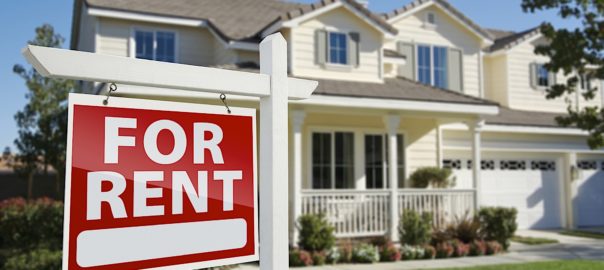Getting Started With Rental Property
By Paul Esajian on May 24, 2019
There is more to real estate investing than flips and rehabs. Sure, these can be your bread and butter investments, but it is ok to sprinkle in a buy and hold deal every now and then as well. If you are like most investors you may have considered adding a rental property but weren’t sure if you were ready for it. You may have heard a horror story about a tenant and decided it wasn’t for you.
The reality is that while rentals can be difficult at times, most of your heavy lifting is done before the start of the lease. With proper due diligence and a good team in place, your rental should run itself. If you have been looking to get started in buy and hold real estate, here are five important steps to follow.
- Understand The Process: Depending on who you talk to and when you talk to them, rentals can either be an easy source of cash flow or more trouble than it’s worth. With most rentals you can go weeks without hearing from your tenant and then out of the blue the furnace will stop working. Before you get too far with any rental you need to take a step back and understand the process. Some leases will seem like stealing money while others will be a complete disaster. Instead of overreacting too much in either direction, you need to accept that it is all part of the rental process. Never let one bad tenant define how you think the duration of your ownership will go. In every lease there will be unexpected issues that must be dealt with. These are the norm rather than the exception. If you understand that there will be issues and it will not always be smooth sailing, you should pursue rental properties.
- Clearly Define Goals: What do you want from a rental property? It sounds like a straightforward question, but many investors aren’t sure how to answer it. With a rental property there are a handful of legitimate benefits. The most obvious is monthly cash flow. Rentals give you the ability to make a return on your investment every month. How much depends on the market, the size of your loan, the down payment and property expenses. Perhaps you want a rental for long term appreciation potential. You are willing to hang onto the property for several years and see where the market is at some point down the road. You can also buy for tax benefits and way of forced savings. Whatever you want out of a rental should be thought out and defined prior to your property search. Your goals will dictate the market you buy in, the offer you make and the type of loan you take. Without a goal in mind you will simply look at a rental just for the sake of buying.
- Know The Numbers: If you don’t know the numbers with your property you will end up disappointed in the results. On the surface the numbers may appear pretty straightforward. You subtract the mortgage payment from the rent received and whatever you are left with is your cash flow. This is a starting point, but certainly not a final number. You also have expenses for utilities, maintenance, yard work, snow removal and other miscellaneous items. These quickly add up and will eat into some, or all, of your residual cash flow. It is essential that you talk to fellow investors, or real estate agents, to get as much information on the property as possible. The numbers alone should influence your decision, not your affinity for the property. You may love everything about a property, but if the numbers don’t work you need to walk away.
- Lease/Rules: It is a good idea to know what you want in your lease and from your tenants prior to rental property shopping. If you have never owned a rental, you probably haven’t given these items too much thought. However, your property rules and the lease define your property search. The most common rental rule up for debate is whether to include pets. There are definite pros and cons for either side, but you can’t waiver. The same is the case for renting to a smoker. Smoking has become much more restrictive in recent years, but still must be a consideration. The same is the case with any parking rules or anything else that you can think of. With your rules you need to apply them to your lease. Instead of copying a generic lease you find online you should have your first lease done by an attorney. This will help you incorporate everything you want without worrying about breaking any laws.
- Screening. Renting your home should be treated like a mortgage application. You wouldn’t just approve anyone for a loan, so you shouldn’t approve the first interested tenant. As we stated, your heavy lifting with the property starts with finding the right tenant. With proper screening you give yourself the best chance at finding a good tenant. With a good tenant that pays on time and takes care of your property you won’t have to worry about much. There will always be a chance of unexpected property damage, but a good tenant makes your life so much easier. Take the time and screen every prospective interested tenant.
Rental properties can completely change your portfolio. Don’t be apprehensive or scared to take the leap. All it takes is one rental to completely change your business.